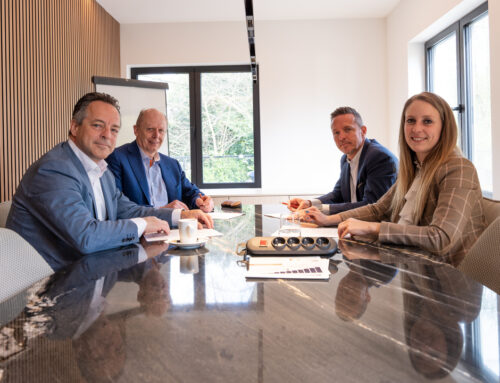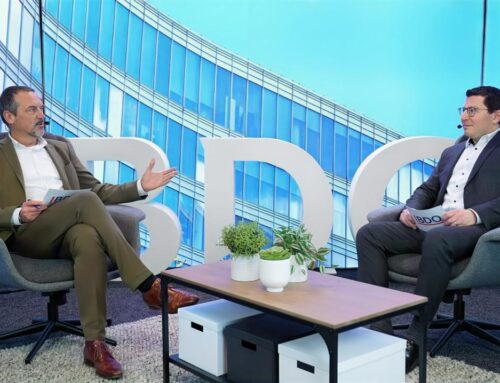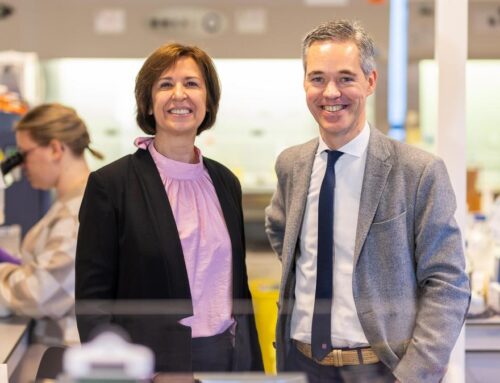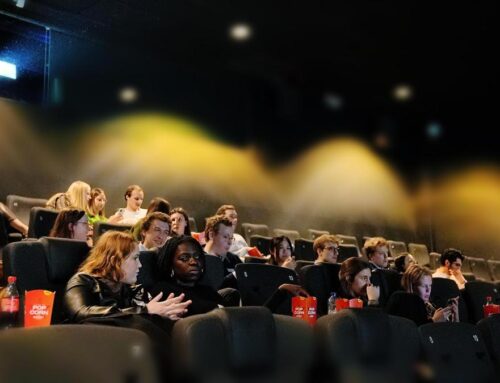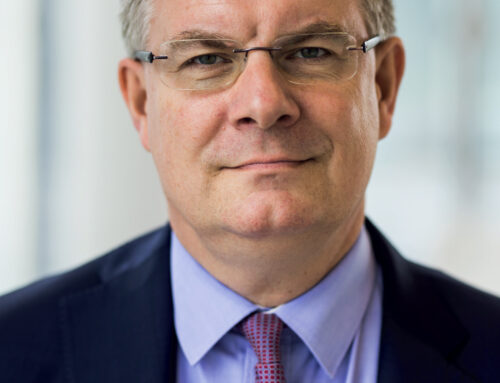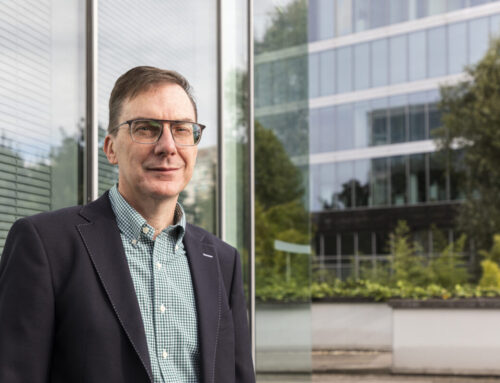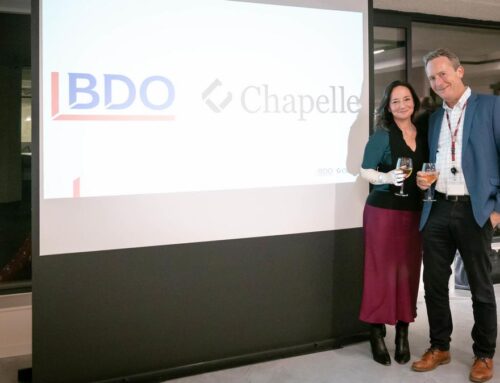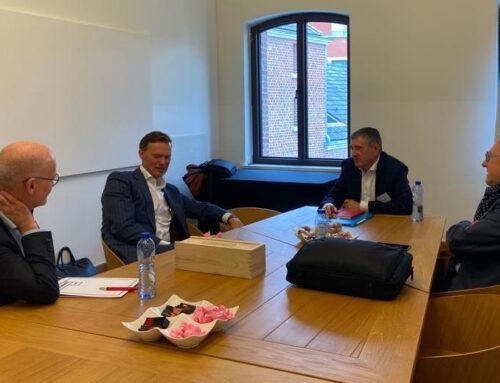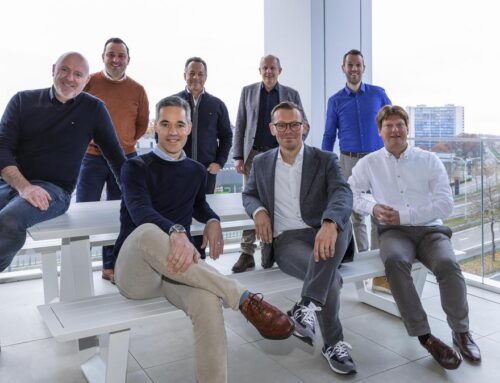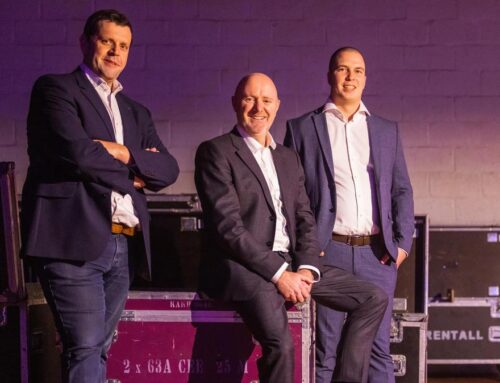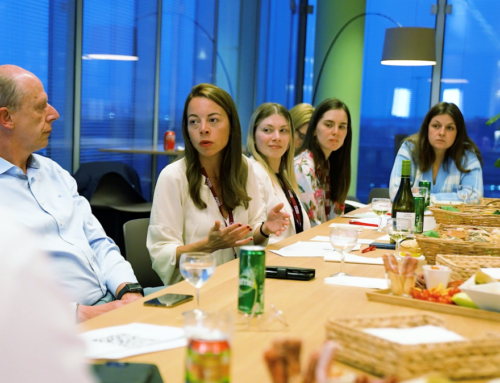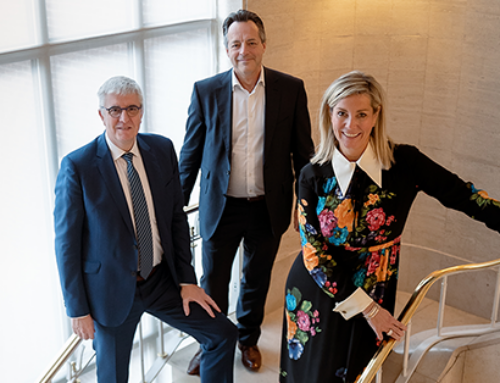“Growth-oriented feedback is more valuable than positive feedback alone.”
Jan De Schepper links people and business
BDO Partner Jan De Schepper recently received the IT Lifetime Achievement Award from Computable Belgium, which describes him as “one of the most influential ICT personalities in Belgium”. In addition, Jan is one of the driving forces behind the CEO Summit, the annual gathering for captains of industry. High time for a chat with this strategic thinker.

Winning a Lifetime Achievement Award hasn’t left you unmoved, has it?
Jan: “I try to remain modest about it. People love awards – they really enjoy recognition, and rightly so, but you also have to put that into perspective. More important than winning an award is the realisation that, in this volatile world – which has been in a permanent state of crisis for years – young people are genuinely concerned. It’s up to us, the baby boomers, to support them, to connect with them and pass on our knowledge.
So, I see the award as a confirmation that I’m fulfilling this duty. Those who can share their experience will multiply it. Strong leaders gain authority by passing on their knowledge and skills and not keeping them to themselves. More than that, they are duty-bound to do so for the generations that come after them. The old saying ‘knowledge is power’ is slowly but surely fading away. Modern leadership does not rely on authority, top-down policy, micro-management, etc., but on the ability to connect with and, at the same time, challenge people, to make them better, stronger and taller.”
“A strong leader gains authority by passing on his or her knowledge and skills.”
Does a manager have to be competent and radiate human warmth and connection?
Jan: “According to a long-term study by Harvard University, for 70% (!) of all employees, the most difficult part of their job is managing their relationship with their manager. The most successful leaders combine ‘agreeable’ and ‘challenging’. In a business environment, making connections – creating links – is just as important as speed in sport. That’s a strength that makes other forces grow.”
What binds Jan to BDO and vice versa?
When Mechelen consultant Crossroad was absorbed by BDO Belgium in 2017 – at the time Jan was an executive board member at Crossroad – he was asked to put BDO more actively in the market with large corporates, without of course neglecting the middle segment. “The aim was to increase the share in the top-of-the-range corporate segment more than the turnover growth of the entire company. Which was a must in order not to fall behind the wave of consolidation in the market. And that seems to be working well. Moreover, I like it when I can make people better, stronger and taller. This is possible at BDO, where there is an enormous amount of talent on board and the right culture. Both factors are equally important.”
You were one of the first to establish the link between top-level sport and leadership.
Jan: “In times of crisis, not many people like to lead, while that is exactly when a good captain is desperately needed. Managing a company successfully, and retaining the right employees in your company, is becoming increasingly difficult. Therefore, it’s high time for a new kind of leadership. A ‘sports mindset’ must be integrated more into the business world. Top athletes are used to performing under pressure and manoeuvring quickly in competitive and complex situations. Performing under pressure is completely different from performing in your comfort zone. Instead of generating stress, leaders must create drive. Neuroscience can teach and help us a lot in this regard. Humans are complex beings, while simultaneously being such very emotional creatures. Too many leaders don’t understand enough what makes people tick, how feelings come about and how to deal with them… You don’t get people moving without emotions. But leaders are not adequately trained for this…”
… which makes organisations ‘overmanaged’?
Jan: “… and ‘undercoached’. BDO is breaking through that reality and has made an enormous effort in recent years to focus more on coaching their people. In this regard, the relationship of trust between the employee and the ‘people manager’ – the coach – is essential. Growth and development are central to this. By focusing on continuous feedback – and ‘feed forward’ – discussions, colleagues know better where they stand and where they want to go. This approach is actually an integral part of the evolution towards more sustainable entrepreneurship. This is not self-evident in a very rational business run primarily by lawyers, accountants, auditors, tax specialists, etc. However, awareness of the importance of connecting and coaching is growing and is also being translated into practice. This creates a great deal of stimulation and is clearly becoming a critical differentiator.”
“Receiving an award is actually getting feedback.” What do you mean exactly?
Jan: “Receiving feedback – in the form of an award or in other ways – may not be an excuse to become conservative, but to improve… regardless of experience and age. People who receive only positive feedback risk falling into the trap of continuing to work the way they currently are. Wrong! Growth-oriented feedback is much more valuable to me than purely positive feedback, because it makes you look at yourself critically and inspires change, evolution and, ultimately, even ‘doing better’ than before. It’s not easy to give and ask for feedback, but it’s crucial for an organisation’s growth story.”
So, it’s fine if feedback puts some pressure on you?
Jan: “A leader must understand the mechanism of where, when and how much pressure they can and may put. People need pressure from time to time to do more than usual, to broaden their tolerance zone. Obsessively avoiding pressure is counter-productive. The art is to convert pressure into positive drive and not into negative pressure or stress. Good leaders can do that.”
‘Pressure’ was the theme of last year’s CEO Summit. The headline for 2023 is ‘Human Cloud: Original Leadership’.
Jan: “A leader who connects with the employees in a human way also dares to (and must) push where it hurts, albeit without pouring salt into the wound. Compare it to receiving a vaccine: at first, you might suffer a little, but eventually you recover, you become better as an individual, and the group immunity grows too. As long as you give people enough time to recover. Giving recovery time is even more important than demanding effort. But don’t let employees stay home if they feel tired after an exhausting assignment – instead, give them a different, less burdensome task for a while. Bottom line: pressure is a well-intended system, and those who can apply the mechanism properly will end up with fewer burnouts or absences. People who experience ‘underpressure’ because they are not challenged enough will start doubting their own talents or skills. An effective leader understands and masters this paradox.”
Easier said than done?
Jan: “Absolutely. Managers receive too little support or, in the worst-case scenario, they have no interest in how people function. Whereas they must understand very clearly what impact the body can have on the brain and vice versa. Instead of having them take another 3-day course on process optimisation or a certain methodology, they need more training on ‘how do I deal with people?’
I once broke my little finger. The radiologist with years of training took a photo. The anaesthesiologist, also highly trained, put me under anaesthesia for the operation. Then it was the surgeon and the physiotherapist’s turn. So many specialisms for a little finger. Meanwhile, there is much less training for the leaders who work with people’s heads and have to understand why they feel good or bad about themselves. The impact of this is so much greater on the well-being of the people and the organisation in which they must function.”
Pressure and pressure is two
At BDO, we understand ‘pressure’ in the positive sense of the word. “Excessive work pressure is certainly not a positive motivator,” adds Wim Galbusera, Human Resources Director BDO Belgium. “In other words, motivation and dedication depend not only on salary or job content but also on the extent to which employees feel connected with colleagues and understood, appreciated and ‘at home’ in their team, organisation or company.”
Indeed, recognising employees is essential, but not enough. Continuing to challenge them (‘putting pressure’ in Jan’s words) to use their talents to the full is just as important. “Giving people a ‘push’ that takes them off balance so that they can, or must, take a step forward afterwards. That’s what we call growing together.”


